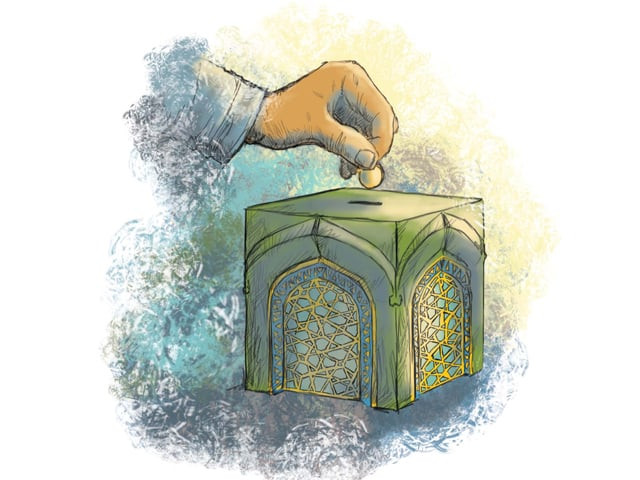Banking, Islamic style
Islamic finance has managed to mirror the cash flows of most conventional banking products.

Muhammad Raza, Head of Commercial Banking at Meezan Bank, outlines the difference succinctly by using an often-quoted reference from the Quran that allows trade but forbids ‘riba’ or usury. He explains that riba is a form of a transaction that is impermissible in Islam.
The transaction is straightforward: the lender extends a certain amount of money to the borrower and the two enter a contract that obligates the borrower to return the principal amount and additional interest payments.
Financial economics argues that interest is merely the price of money and hence, must be paid to the lender in order to compensate for the loss in time value of money.
Raza says that Islam categorises transactions into four forms: business, safekeeping, loans and gifts.
A business contract is one in which investors may provide money for the sake of recouping a profit. Safekeeping or ‘amanat’ is when one deposits an asset with another, only to reclaim it later. Any loss in the asset value must be borne by the lender.
In the Islamic version of a loan, the lender can only claim the amount extended to the borrower and not more, while a gift, or donation, is a unilateral transfer or irreversible promise of transfer of asset.
Furthermore, he emphasises that the sale of an asset or claiming periodic payments for renting an asset is within the boundaries prescribed by Islamic law.
Raza says that in addition to riba, trading or selling of debt is not allowed in Islam. Complex derivatives are disallowed by Shariah as well. Unsurprisingly, he blames the increasing sale of debt not backed by tangible assets and romance with increasingly complicated derivatives for the global financial meltdown.
He goes on to elaborate that the concept of ‘gharar’, which is the sale of an asset whose exact value is subject to probabilities, is not allowed. Thus, profiting by trading in any form of uncertainty or risk is impermissible.
Apart from singlehandedly ruining the actuarial job market, this ruling poses serious challenges for the fields of insurance and derivatives. Speculation and its instruments are also forbidden by an extension of this ruling.
With these restrictions in place, how does Islamic banking manage to gain a competitive market share?
Raza cites the potential of the unbanked sector in Pakistan and the inclination towards a more conscientious lifestyle as reasons for the growth in Islamic banking. He also acknowledges that Islamic banking is not independent of the financial industry and cash flows from Islamic products do resemble those of conventional products.
However, he stresses that the principles of Islamic banking are not violated in the contractual agreements that form the backbone of the sector.
Islamic banks also dip into the money market occasionally to fulfil short-term liquidity needs by dealing in asset-backed instruments, he adds.
Raza strongly believes that a truly Islamic economy would not require intervention by the central bank. Instead, it would serve as a regulator and research and development hub for industry.
Although an economy based purely on Islamic principles is a rosy dream for many, Islamic banking is going through its adolescent, formative years at present. Thorough research and concrete institutions are required to ensure that the dream economy does not materialise as a house of glass.
By using combinations of sale contracts, rental contracts, unilateral promises and equity contracts, Islamic finance has managed to mirror the cash flows of most conventional banking products. To stay competitive, Raza acknowledges that rental payments are linked to the more conventional interbank interest rate (Kibor).
Published in The Express Tribune, October 25th, 2010.


















COMMENTS
Comments are moderated and generally will be posted if they are on-topic and not abusive.
For more information, please see our Comments FAQ